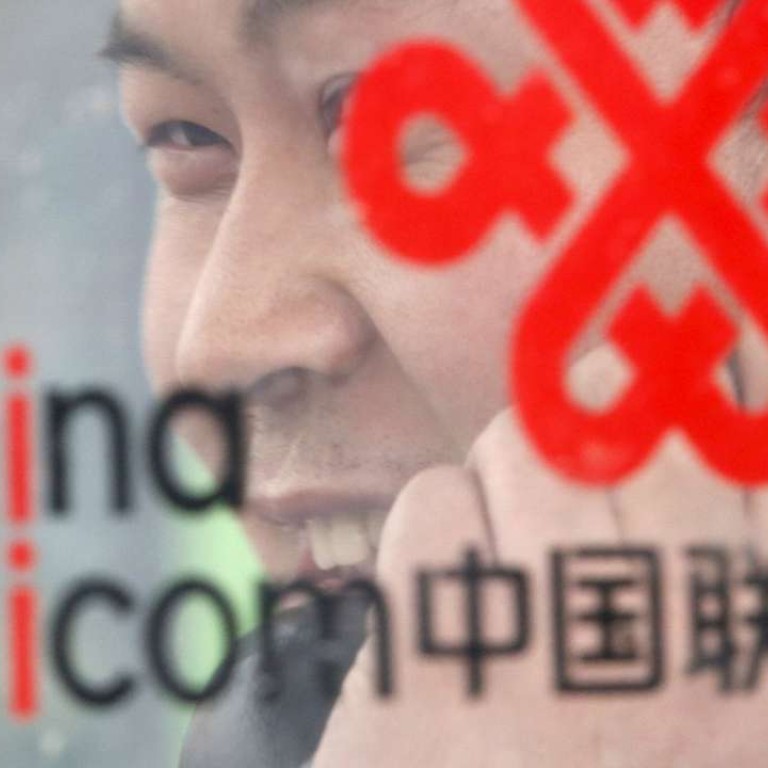
China Unicom shares soar despite denial of mixed ownership reform
State-owned telecommunications company China Unicom’s shares rose over 7 per cent at the market close on Wednesday despite the company refuting media reports that the Chinese tech giants collectively known as “BAT” would invest as part of a mixed ownership reform.
Hong Kong-listed China Unicom saw its share price jump almost 9 per cent from HK$8.77 to a high of HK$9.64 in the afternoon, its sharpest advance since March, after Chinese media outlet The Paper cited an unnamed source that said Chinese internet giants Baidu, Alibaba and Tencent would each take varying stakes in the company.
Alibaba owns the South China Morning Post.
China Unicom issued a clarification on Wednesday afternoon, refuting media reports and stating that neither the “reform implementation plan nor the selection of Unicom Group for the first batch of pilot-run on mixed-ownership reform has obtained final approval”.
In October, China Unicom was said to be working on a mixed ownership reform plan as part of a group of companies slated for a pilot run.
Following China Unicom’s clarification, the company’s stock price dipped to close at HK$9.42, although it was still up 7.41 per cent from Tuesday.
China’s mixed ownership reform is targeted at state-owned enterprises in a bid to encourage competition, increase operating efficiency among SOEs in industries such as electric power, petroleum, and telecommunications, as well as inject private capital into the enterprises.
However, China’s National Development and Reform Commission has yet to give the final go-ahead for the pilot programme.
Unicom’s total net profit in the past three quarters of this year fell 80.6 per cent to 1.59 billion yuan (HK$1.83 billion), down from 8.18 billion yuan in the same period last year.
The company attributed its profit decline to increased spending in selling and marketing costs, as well as network, operation and support expenses due to an additional tower usage fee, higher energy charges and property rentals.

